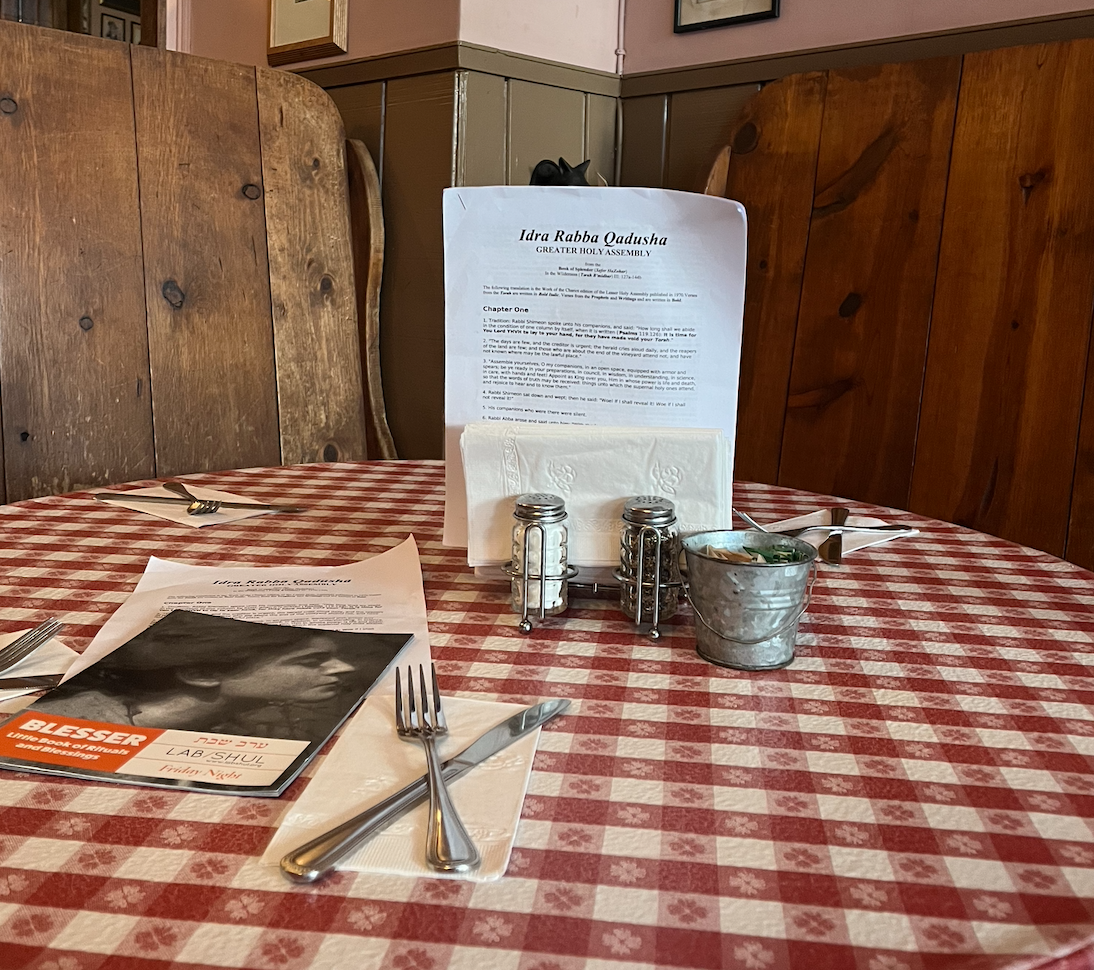
Sacred and mystical Jewish texts are usually studied at home or in the synagogue. But on a recent evening in Manhattan, a progressive Jewish community read the Zohar, a text of Jewish mysticism written in the 13th century in Spain, while seated around a checkered tablecloth at Cowgirl, a non-kosher, Texas-style restaurant at 519 Hudson Street. They were celebrating the festival of Tu Bishvat, which marks the awakening of the trees of the Holy Land. Eight members of The New Shul celebrated by ordering fruit-laced drinks.
The New Shul is a progressive Jewish organization founded in 1999 that explores Judaism through a creative, inclusive, and modern lens, said Rabbi Misha Shulman. Tu Bishvat, on the 15th day of the Hebrew month of Shevat, is a minor festival, more often celebrated by the Orthodox community. But on this Saturday evening, The New Shul community recaptured some of the mystical elements of the faith.
Zohar is the text of Jewish mysticism, Shulman said. “It is an Aramaic text of Kabbalah written in the 13th century in Spain.”
The table was filled with sangria, frozen margaritas, red and white wine, a bowl of fried okra, and nachos for everyone to share.
“I brought a bag of fruit for us too,” Shulman said. He then said a blessing over the fruit, took a sip of his sangria and began to read the first page of the stapled packet of Zohar chapters from the Idra Rabba Qadusha (Greater Holy Assembly):
And it is written (Ecclesiastes 5.6): Suffer not your mouth to cause thy flesh to sin.
For neither does the world remain firm, except through secrets. And in worldly affairs there be so great a need for secrets…
One congregant, Susan Meyers, asked: “What is the meaning of secrets here?”
Shulman slightly grinned at the question. “Remember not to read this text too literally,” he said. “Secrets can be interpreted as knowledge that cannot be fully understood by people — the text continues to say that these secrets are ‘matters not even revealed unto the highest angels.’”
One congregant nodded, reassured, as another snapped her fingers in agreement.
It had been nearly 30 minutes of reading and discussing the Zohar. The first round of drinks and appetizers were nearly finished.
The secret of the Lord YHVH is with them that fear Him…
Nina Kaufelt leaned forward and turned her body toward Shulman as she asked, “Why is YHVH written here, instead of Adonai?” Shulman responded that this is a literary text, not prayer, so it was fine to read YHVH aloud.
Those around the table took turns reading aloud, starting to raise their voices as the restaurant filled up.
“It is often said that you shouldn’t read Kabbalah until you are 40,” Shulman said glancing meaningfully at Serena Sarch, 27, and me.
In two hours, we had made it halfway through the 12-page packet. Groups of people were constantly filtered in and out of the restaurant. The waiters periodically cleared the table and asked if anyone wanted anything else whenever there was a break in teaching. Shulman ordered another sangria. He finished teaching in the wooden booth beneath a warm-yellow chandelier with carved, deer-shaped antlers, a rustic-framed picture of cowgirls, and a horseshoe.
